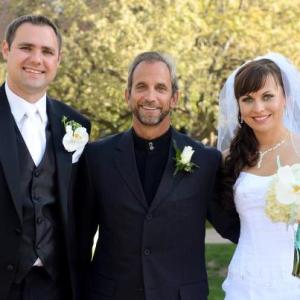When to Escalate Conflict
As a nation of primarily conflict avoidant people, just the notion of escalating conflict can sound like a contradiction. And yet, there are times when escalating a conflict is exactly what you need to do.
But the conditions have to be right.
What do I mean? I mean that there has to be an intention…a purpose…or a reason for escalating a conflict, first and foremost. And the more favorable the reason—the more favorable the likely outcome.
If the ultimate desire in escalating a conflict is to improve or enhance your relationship with the conflicting party—and the unresolved or nagging issue between the two of you is impeding that from happening—then YES, the conditions are right for escalation. After all, how else will this issue get on the table? I may suggest, however, that you carefully frame the escalation by stating what your desired goal is before the actual escalation begins, if you catch my drift. It’s called framing the conversation or setting the context. This will prevent the other party from being overly defensive and feeling attacked.
What you don’t want to do is escalate a conflict under any of the following conditions:
· You’ve had too much to drink
· You’re angry and you want to vent
· You are feeling victimized
· You love a good debate and want to stir things up
There’s a lot at stake here. Successful relationships are built on trust, mutual understanding, respect, and most of all, love. A misused escalation could severely hamper those foundational characteristics and be quite difficult to rebuild.
Escalation, if done correctly, can help a team grow, develop, and mature as well.
I was a member of a four-person mastermind group a few years ago when I had a disagreement with Dan, one of the members, about a business opportunity he presented to me and then rescinded the next day. Frankly, the conflict didn’t involve the other two members of the team and didn’t need to involve them. However, both Dan I thought it would be a good idea to play out this conflict in front of the whole group.
Why?
Because, even though our mastermind group had been together for over two years, we never had a conflict in the group before. We barely had a disagreement. We thought of ourselves as a tight team but the truth was we were still in the forming stage. We had a lot of maturing still to go if we were going to become a high performing team. To do so, we needed to become efficient at working through group conflict, among other things.
So, with the intent of introducing conflict into our mastermind, we played out our argument in front of the other two members of the group. And this was a real argument, I might add, with differing opinions, emotions, and even conflict styles. But what was most surprising in this real-life experiment was not the conflict itself but the lack of engagement from the other two members of our group. Neither of them made a comment, a suggestion, or an intervention during the whole escapade. Not a word. They both simply watched from the sidelines, like spectators at a boxing match.
Failed experiment?
Had we not debriefed as a group about the group dynamics, both before, during, and after the conflict, it could have been a real missed opportunity. Fortunately, we used this conflict escalation as a means to having a very powerful conversation about our group’s level of engagement with each other and our commitment to becoming a high performing team. That led to some additional group expectations and a significant shift in our relationships with one-another.
What I’m saying here is that planned conflict escalation for the betterment of a relationship or group relationships can be an effective use of this conflict method. It is also easier to direct an escalation towards a desired goal when the intent of the escalation itself has been stated upfront. Thus, by following these simple guidelines above for escalation, you should have tremendous success.
One final point. Now that we’ve entered the season for holiday parties and festivities with friends and family, conflicts may be on the rise. Knowing this, you may want to pick and choose your battles carefully; and only escalate a conflict if the right conditions exist.
Now go and be Merry!
Greg “Geese” Giesen














